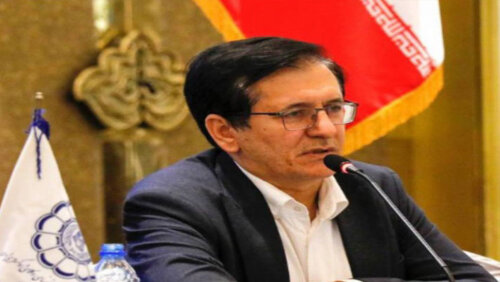Best Estate Planning Lawyers in Iran
Share your needs with us, get contacted by law firms.
Free. Takes 2 min.
Or refine your search by selecting a city:
List of the best lawyers in Iran
About Estate Planning Law in Iran:
Estate planning in Iran involves making legal arrangements for the transfer of a person's assets and properties after their death. This process ensures that the individual's wishes are carried out and their loved ones are provided for according to their preferences.
Why You May Need a Lawyer:
There are various situations where hiring a lawyer for estate planning in Iran is essential. This includes drafting wills, setting up trusts, determining beneficiaries, and ensuring that all legal aspects are in compliance with the local laws.
Local Laws Overview:
In Iran, Islamic law (sharia) plays a significant role in estate planning. The distribution of assets is governed by Islamic inheritance rules, which may differ from Western legal systems. It is important to consult with a knowledgeable lawyer to ensure that your estate plan aligns with the local laws.
Frequently Asked Questions:
1. What is the importance of estate planning in Iran?
Estate planning is crucial in Iran to ensure that your assets are distributed according to your wishes and in compliance with the local laws.
2. Can I create a will in Iran?
Yes, you can create a will in Iran to designate how your assets should be distributed after your death.
3. How does Islamic law impact estate planning in Iran?
Islamic law dictates the distribution of assets among heirs, following specific rules based on the relationship to the deceased.
4. What is a trust and how is it used in estate planning?
A trust is a legal arrangement where a trustee holds assets on behalf of beneficiaries, often used for estate planning purposes to protect assets and manage their distribution.
5. Can I appoint an executor for my estate in Iran?
Yes, you can appoint an executor to manage the distribution of your assets according to your will in Iran.
6. What are the key documents needed for estate planning in Iran?
Key documents include a will, trust agreements, powers of attorney, and any other legal documents specifying your wishes regarding your assets and properties.
7. How can I ensure that my estate plan is legally valid in Iran?
Consulting with a lawyer experienced in estate planning laws in Iran can help ensure that your estate plan is legally valid and in compliance with the local regulations.
8. What happens if I die without a will in Iran?
If you die without a will in Iran, your assets will be distributed according to Islamic inheritance laws, which may not align with your preferences.
9. Can I revoke or amend my estate plan in Iran?
Yes, you can revoke or amend your estate plan in Iran at any time, as long as you are of sound mind and meet the legal requirements for changes to be valid.
10. How can a lawyer help me with estate planning in Iran?
A lawyer can provide legal advice, draft necessary documents, ensure compliance with local laws, and represent your interests in matters related to estate planning in Iran.
Additional Resources:
For more information on estate planning in Iran, you can reach out to the Bar Association of Iran or consult with legal experts specializing in estate planning.
Next Steps:
If you require legal assistance with estate planning in Iran, it is advisable to schedule a consultation with a qualified lawyer familiar with the local laws and regulations governing estate planning.
Lawzana helps you find the best lawyers and law firms in Iran through a curated and pre-screened list of qualified legal professionals. Our platform offers rankings and detailed profiles of attorneys and law firms, allowing you to compare based on practice areas, including Estate Planning, experience, and client feedback.
Each profile includes a description of the firm's areas of practice, client reviews, team members and partners, year of establishment, spoken languages, office locations, contact information, social media presence, and any published articles or resources. Most firms on our platform speak English and are experienced in both local and international legal matters.
Get a quote from top-rated law firms in Iran — quickly, securely, and without unnecessary hassle.
Disclaimer:
The information provided on this page is for general informational purposes only and does not constitute legal advice. While we strive to ensure the accuracy and relevance of the content, legal information may change over time, and interpretations of the law can vary. You should always consult with a qualified legal professional for advice specific to your situation.
We disclaim all liability for actions taken or not taken based on the content of this page. If you believe any information is incorrect or outdated, please contact us, and we will review and update it where appropriate.
Browse estate planning law firms by city in Iran
Refine your search by selecting a city.









